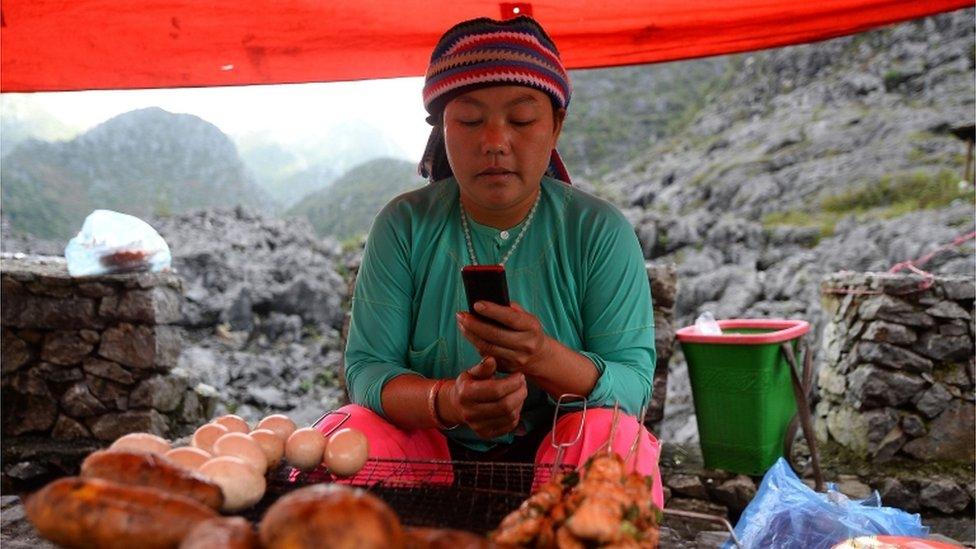Trump and Kim in Hanoi: Your need-to-know guide
- Published
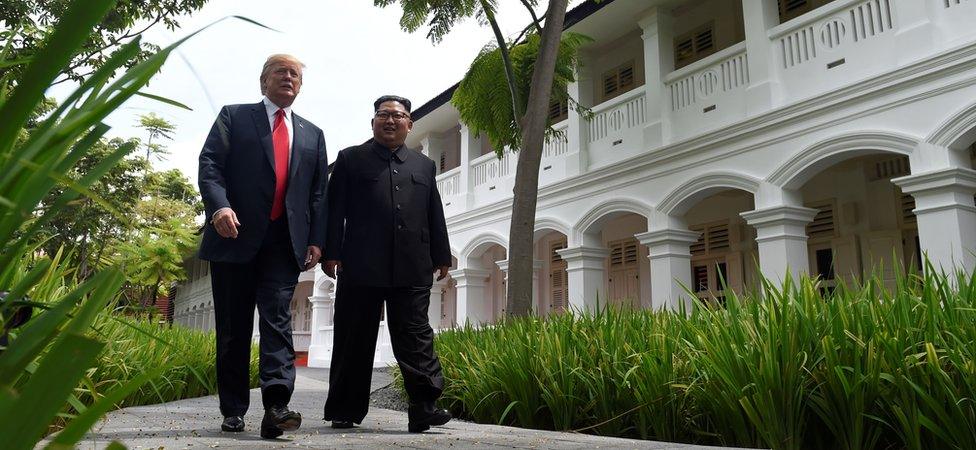
US President Donald Trump is meeting North Korea's Kim Jong-un in Vietnam this week - for the second time.
The hope is the two former arch enemies can iron out some form of agreement on North Korea's controversial nuclear weapons programme.
If you want to get your head around what's going on this week, here are some of the basics. We've pointed you towards more detailed articles if you want to know more.
What are they going to talk about?
The same thing they talked about when they had their historic first meeting last June in Singapore: nuclear weapons.
Most of the world wants North Korea to give up its nuclear weapons - a process usually called denuclearisation. But North Korea has consistently said it won't do so until it no longer feels it faces a threat from the US and others.
Donald Trump and Kim Jong-un: From enemies to frenemies
Because of this, North Korea is under a wide range of sanctions which stop it from trading or interacting normally with the wider world. It wants to take the least possible action to secure an easing of those sanctions.
Hasn't North Korea already promised to give up its nuclear weapons?
No, not at all.
When they met last year, Trump and Kim signed the Singapore Declaration, which was high on optimism but low on detail.
They said they were committed to peace and denuclearisation, but they've never agreed what this actually means nor how it will happen.
North Korea has blown up its nuclear testing site - though it doesn't really need it anymore as it knows its nukes work - but there is no indication it's done anything else to stop its nuclear development.
In fact, senior US intelligence officials say North Korea will never give them up, because it believes they're "critical to regime survival".
In recent weeks Mr Trump has appeared to scale back his ambitions, saying he'd be happy as long as North Korea doesn't test any more missiles or nuclear bombs, which is the status quo right now.
The US might also push for North Korea to simply provide a full list of all its nuclear tech - but even this is something it's never been willing to do.
Why can't North Korea have nuclear weapons?
Nuclear bombs are the most powerful weapons ever created. With a few exceptions, the world has agreed there should be no new nuclear-capable states. North Korea has broken international laws and treaties by developing its own nuclear arsenal.
Aside from the very real fear it might one day use these weapons in anger, it could potentially sell the technology to other states, make mistakes that lead to accidents or if the government collapsed, they could fall into the wrong hands.
If North Korea is allowed to have its own nuclear weapons, it could encourage other states to pursue the same path.
Is North Korea a real threat?
Yes, potentially. It has repeatedly said it would not be afraid to use nuclear or conventional weapons if threatened.
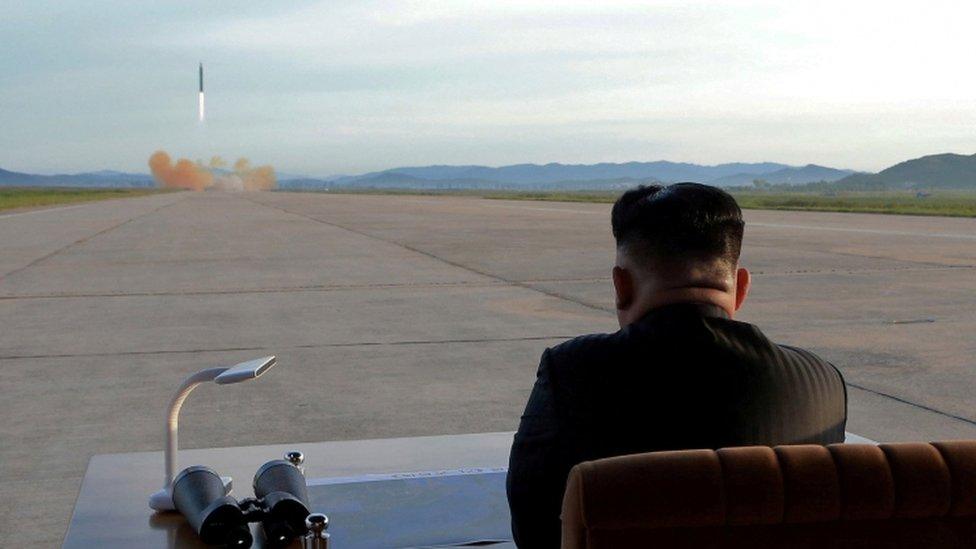
Kim Jong-un watching a missile test in September 2017
The countries most nervous about that are its neighbours - South Korea and Japan. (The US has tens of thousands of troops in both those countries.) But North Korea also claims to have missiles powerful enough to reach the US mainland.
There's also been a growing cyber security threat from North Korea in recent years.
Most analysts agree, though, that were North Korea ever to initiate conflict it would be a suicidal move for the regime.
Are the US and North Korea at war?
Technically yes. The Korean War ended with a formal halt in fighting - an armistice - but a peace treaty has never been signed.
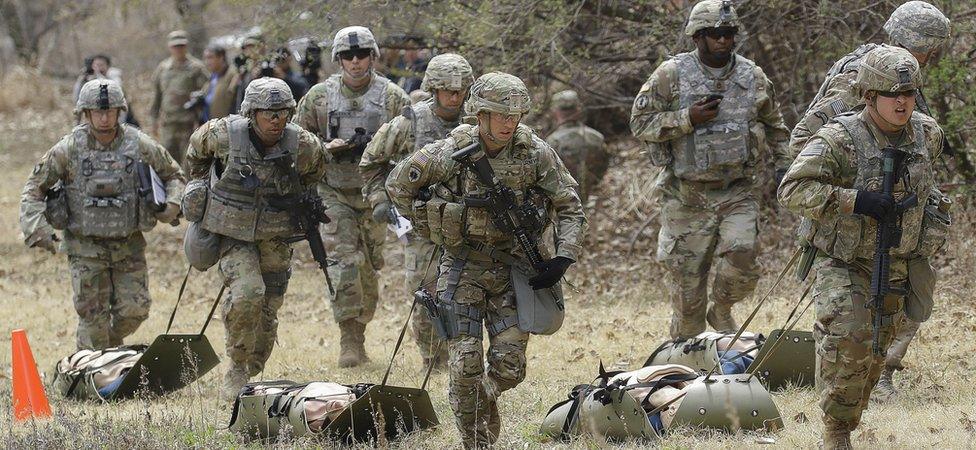
Under a post-war pact, the US still has more than 23,000 military personnel based in South Korea and conducts regular training drills with South Korean troops.
One outcome of the summit might be some form of peace declaration, something Kim certainly wants.
That won't be a formal peace treaty - that's a complicated political process with huge practical implications - but more a symbolic gesture that would make both leaders look good to their home bases.
Why are they meeting in Vietnam?
As a communist country Vietnam shares some political similarities with North Korea and also has a history of conflict with the US.
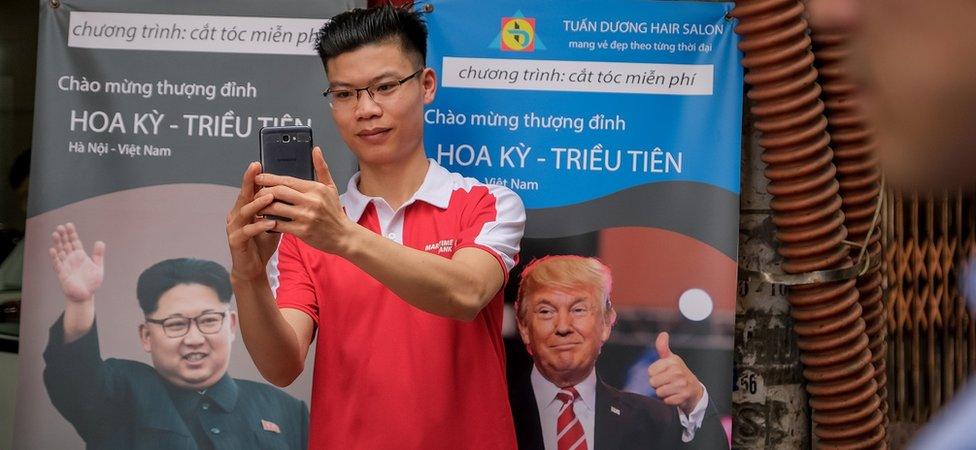
It's seen as a possible model for North Korea to follow if it were to emerge from isolation. Kim will be spending some time while there looking at industry and commerce. If he's to reach a deal with the US, overturning decades of anti-US propaganda, he'll need to convince North Korea's elite that there's gain in it for them.
Kim also won't need to worry about protests - Vietnam won't allow demonstrations - and journalists covering the summit are being closely monitored.
What's it like in North Korea?
The government is one of the most brutal in the world, exercising total control over people's lives. The World Food Programme believes more than 10 million people are undernourished.
Jessie Kim escaped North Korea after a childhood selling alcohol at local markets
For the political and urban elite, life has got a lot better in recent years, despite sanctions, but rights experts say nothing much has changed as the North has started engaging diplomatically.
Human rights will almost certainly not be discussed at the Trump-Kim summit, but they may discuss a deal to allow in some humanitarian relief or to let families separated since the war see each other again.
Why does North Korea have no lights?
This is a question that gets Googled a lot - because of satellite pictures like this. That dark section in the middle is North Korea, sandwiched between China, South Korea and Japan.
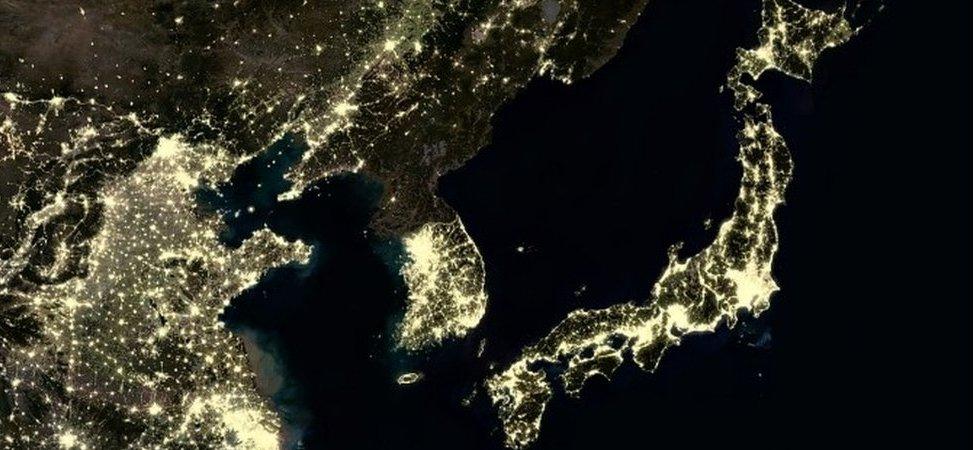
Nighttime satellite images show a speck of light from the capital, Pyongyang, but almost no lights elsewhere
The answer is that North Korea doesn't have an extensive or reliable supply of electricity. The power stations and hydroelectric dams are old and suffer from a shortage of fuel and spare parts. Supply of power is prioritised for military or official purposes.
Outside cities, many people rely on expensive and noisy generators, however, according to NK News, solar panels - which are cheap and reliable - are becoming increasingly popular, external for domestic use.
Could the US ever just attack North Korea?
This is often asked online, in response to stories about the threat posed by North Korea.
In theory yes it could, but few experts will say that's a good idea.
For starters there's the ethical question - there are 25 million people in North Korea - most of them victims of the government, not part of the problem.
Removing Kim and the senior leadership would risk huge instability in a vulnerable and impoverished country - that would inevitably lead to a refugee crisis, which North Korea's neighbours want to avoid at all costs, and destabilise the whole region.
And North Korea has nuclear, chemical and biological weapons and a vast standing army. Unless they were all disabled at once, it would strike back, even if briefly.
- Published20 February 2019
